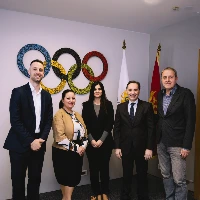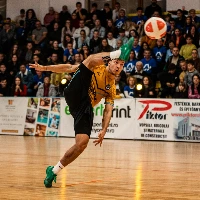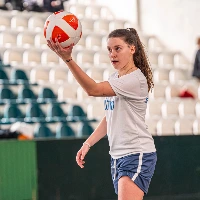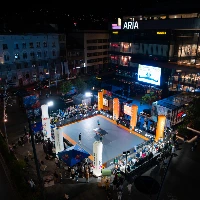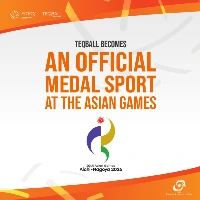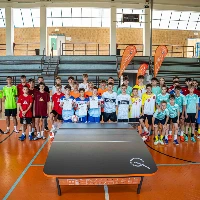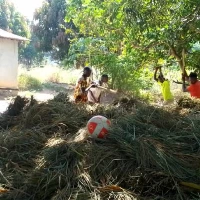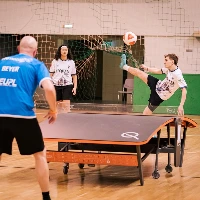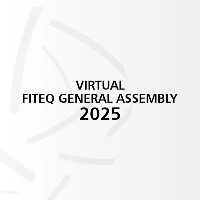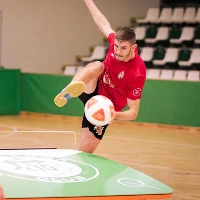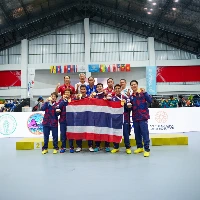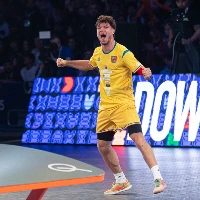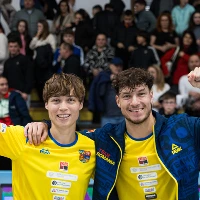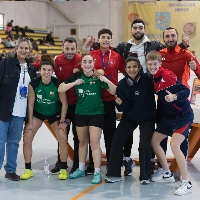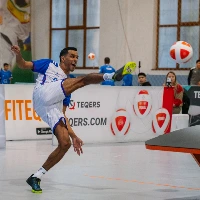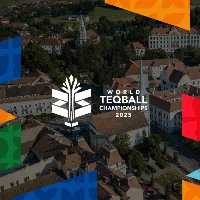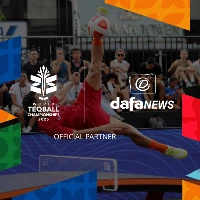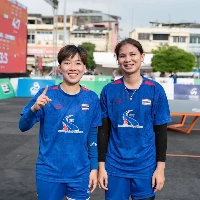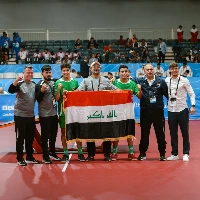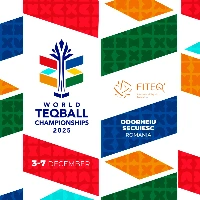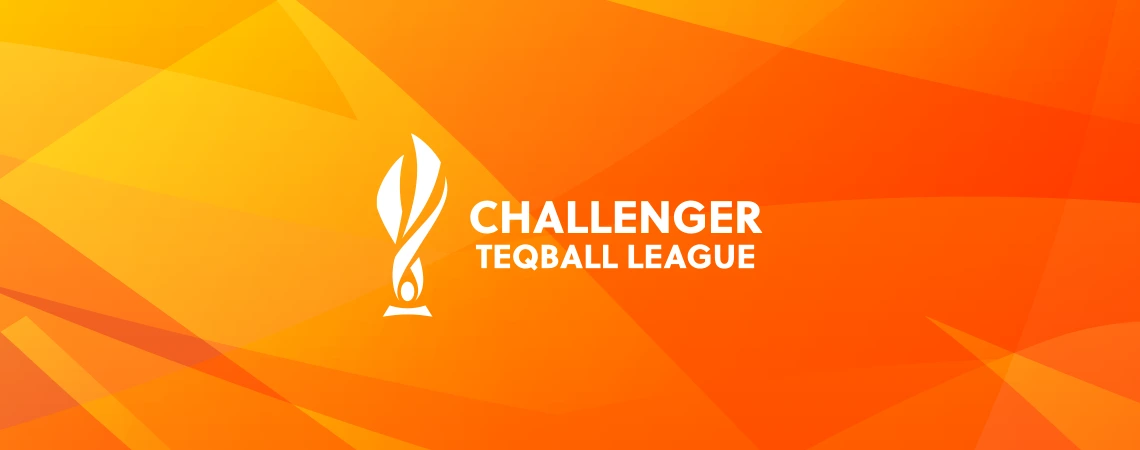
CTL – Odorheiu Secuiesc delivers upsets and standout performances
The Challenger Teqball League returned to Odorheiu Secuiesc for its second stop of the season, as 60 athletes from seven countries competed across the weekend in pursuit of silverware. The event featured a strong mix of established champions and emerging talents, producing several notable upsets alongside dominant displays from the favourites.
Mixed Doubles opened the event, and while Group A followed the script, Group B quickly tore it up. Reigning World Champions Apor Gyorgydeak (ROU) / Barabasi Kinga (ROU) moved through their group without dropping a set, with Salome Barabasi (ROU) / Kristaly Hunor (ROU) joining them in the semi-finals.
The shock came elsewhere, as the Hungarian duo Adam Blazsovics / Petra Pechy, bronze medallists at the 2025 World Teqball Championships, were edged out by Daniel Botond Varga (HUN) / Zsofia Dezsenyi (HUN) in a dramatic three-set encounter (12-8, 6-12, 13-15). Riding that momentum, Varga / Dezsenyi pushed all the way to the final, where they met the tournament favourites. Gyorgydeak / Barabasi proved decisive in the closing stages, securing the title in straight sets (12-7, 12-10).
Men’s Singles delivered the deepest field of the weekend, with 32 players entering the draw and little room for error from the opening round. Nikola Mitro (SRB) stamped his authority early, finishing atop Group A with a +48 point difference, while Marek Pokwap (POL) continued a strong return from injury by also claiming first place in his group. Hungarian newcomer Kevin Lakatos (HUN) made an immediate impression, advancing from Group C in his first tournament appearance. The knockout stage quickly shifted the narrative. Four-time World Champion Mitro saw his run halted in the Round of 16 by Soma Cseri (HUN) after a tightly contested three-set match. On the opposite side of the draw, Gergo Dombai (HUN) built momentum with composed performances to reach the final, but Pokwap’s consistency proved decisive, as the Polish player sealed the title in straight sets (12-11, 12-2).
In Men’s Doubles, emerging Hungarian pairing Kevin Lakatos (HUN) / Robert Boni (HUN) turned heads by finishing second in a six-team Group B. Their reward was an early meeting with favourites Gyorgydeak / Pokwap, who maintained their level through the knockout rounds and into the final. There, they faced Benjamin Patrik Toth (HUN) / Boldizsar Levik (HUN) in a tight contest that stayed close throughout, before Gyorgydeak / Pokwap edged both sets 12-9, 12-9 to close out the weekend with another title.
Attention now turns quickly to the next stop of the Challenger Teqball League, set for Madeira between 12–14 March, where the race for momentum in the 2026 season continues.

